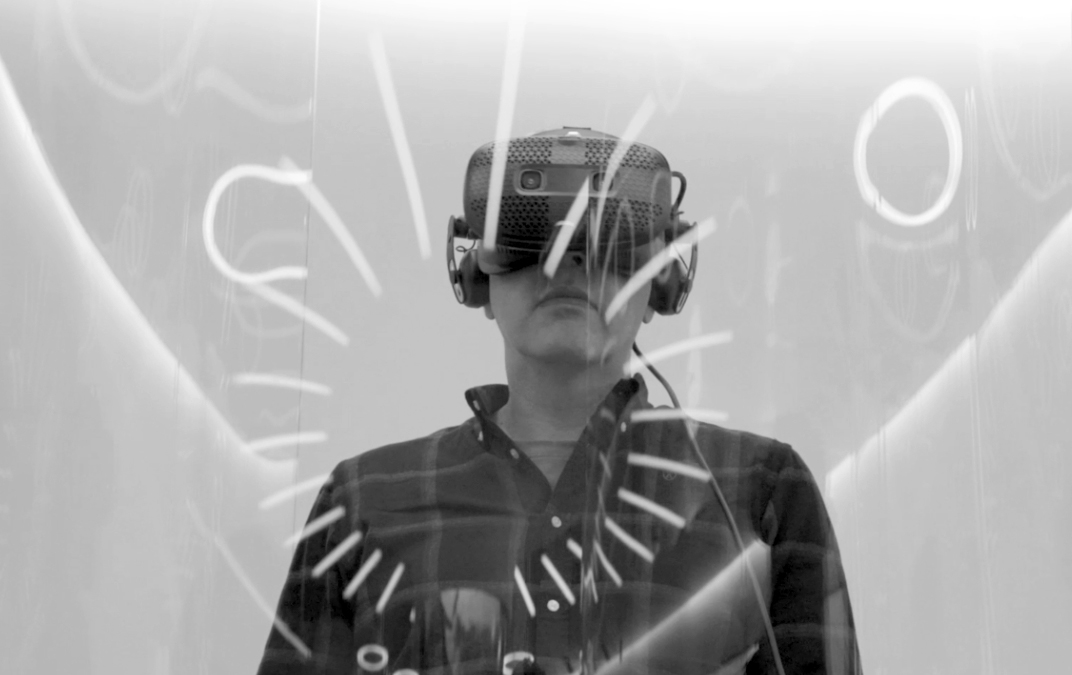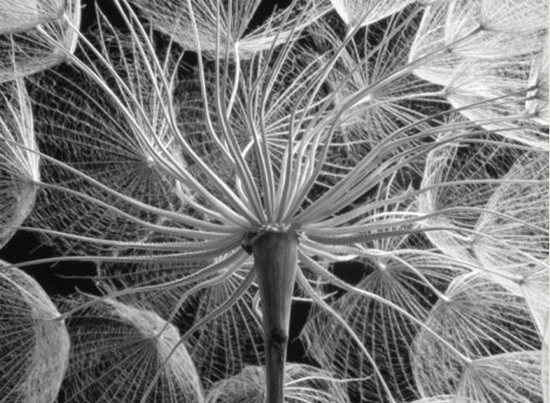We are all strange
A piece by Carlos Sanz de Andino for the Yorokobu Magazine.
- Date
- Written by Carlos Sanz de Andino
Marcial was eager to leave that room. The textured walls were tearing at his skin. Each of those tiny pointed bumps seemed like sharp claws of a feline, scratching at his eyes and his spirit. He couldn’t pay attention to what his hostess was saying.
The night had started off well when Nina had invited him to her house for a nightcap. She looked so beautiful. She was so charming and seductive. But when he entered her living room, there it was—the textured wallpaper. Everywhere, surrounding him, pointing at him with a thousand little fingers, as if saying, "We're coming for you, you won't escape, ha, ha, ha." It was unbearable.
He couldn’t help it, since he was a child, the textured wallpaper had chosen him as its adversary, and every time he entered a room where it had taken over, he felt a sense of unease. He couldn’t think of anything else: bump, shadow, bump, shadow, bump… without any order, thousands, millions of bumps with their little shadows dotting the wall shamelessly, sworn to shatter his emotional stability. Suddenly, Nina didn’t seem so beautiful, so charming, or so seductive; instead, she appeared more like a cruel jailer standing between him and the exit. He fled from there, and it wasn’t until he touched the smooth walls of his house, free of imperfections, that he was able to breathe normally again.
Verónica took a deep breath. She was really trying to look into the eyes of the handsome guy she had met on Tinder. He was a perfect match , tall, with clear eyes, a civil engineer, single, with a deep voice... On paper, nothing could go wrong. But he was wearing dirty shoes. The moment she saw them, she knew it was all over, even before it had a chance to begin.
Making an exception, out of deference to his gray eyes and his six foot four frame, she could have overlooked the navy blue shirt and black jacket, which clashed with good taste, but the dirty shoes were simply unforgivable. Dirty shoes were a red flag the size of Australia. She kept looking the engineer in the eyes, but couldn't stop thinking that, underneath that fake linen tablecloth, lurked some unsettling Italian shoes, probably from Santoni, filthy with dust. A cold bead of sweat ran down her forehead.
Mario always sweated when he was late. He glanced at his watch—there were only five minutes left until seven, and the taxi’s GPS indicated they wouldn't reach the destination for another eight minutes. He couldn't stand other people's tardiness, and his own seemed even worse. He preferred to arrive early and wait if necessary, which is why he always left well in advance for his appointments.
This time, it hadn't been his fault. The idiot on the Vespa had crashed into the Mercedes for not paying attention, and although there were no injuries, they had started yelling at each other. Meanwhile, the clock was ticking, and everyone was stuck. Now he was going to be late for his dentist appointment. He knew no one would care about the delay, but it wasn’t about that—it was that not sticking to his schedule perfectly made him sick. He felt a pounding—like a tick-tock, tick-tock, tick-tock—at his temples. There were three minutes left until seven, and the GPS said they wouldn’t arrive for another six. His heart was pounding out of his chest.
Amaya felt her heart race when the waiter brought over the tray. Caviar! Well, it wasn’t real caviar, but that imitation they sell everywhere, but that didn’t matter for her: all those little balls together, stuck to each other, made her tremble. She couldn’t stand the accumulation of spheres in any form. It terrified her. Once, when she was a child, her parents took her to a ball pit thinking it would make her really happy, and they ended up in the emergency room with an anxiety attack. That’s when she realized.
She could handle a tennis ball, but a jar of four made her shudder. And when it hailed, she had to hide in an interior room, safe from the extraterrestrial invasion of frozen little balls. She couldn’t explain it, but the spheres and she repelled each other. The waiter couldn’t know, and he threateningly offered her the lumpfish roe canapé. Amaya lived that moment in slow motion, as if Norman Bates was about to stab her in the shower. A chill ran down her spine.
Román felt a shiver as he stroked the reddish fabric spine, with golden prints of an orangutan on the cover and a bird of paradise on the back, of that first American edition of The Malay Archipelago: The land of the Orangutan and the Bird of Paradise: A Narrative of Travel with Studies of Man and Nature, by William Wallace. He glanced over the editor's name, New York Harper & Brothers, and the publication year, 1869. He breathed in the unmistakable scent of the old paper of its pages, admired its beautiful engravings, and unfolded the map with the delicate care of a surgeon performing open-heart surgery.
His firstborn had not inherited his passion and always mocked him: "What, another one of those old books? It seems like you love them more than your own children!" Román smiled at him, as he always did, and then went back to caressing that nearly two-hundred-year-old tome as one would a newborn baby.
Raúl was deeply in love with Sofía, or so he thought, because as soon as he saw her prepare a blue cheese sandwich with anchovies, he felt nausea—not only from the sandwich, but from her as well. Elena couldn’t stand sitting another minute in the meeting, facing that crooked painting of horses. She got up, and although she was the most junior, she crossed the room in front of the president, the CFO, and her boss, and straightened it.
Miguel couldn’t understand how none of his friends were bothered by—not even noticing!—those unbearable hisses, buzzes, and throat clears with which that miserable Chinese speaker massacred Billie Eilish’s voice. And poor Samuel couldn’t explain why he had an irrational fear that the peanut butter would stick to the roof of his mouth.
Dr. Spottorno explained to him that this was called araquibutirophobia, and that, although it wasn’t very common, there were precedents. In other words, Samuel was odd, but not a hopeless case. After that, the doctor escorted him to the door. He glanced at the frame on the wall with his diploma, earned three decades ago, and sighed. There were still ten minutes before his next patient arrived. Samuel was a bit quirky, but who wasn’t? Everyone in their own way. Ablutomania, ailuromania, citomania, coreomania, ergomania, oikomania…
They didn’t know what was happening to them, but he could put a name to almost anything that stirred, excited, or hurt his sensitivity. There were so many sensitivities, so different… So many loves and phobias, so irrational and often so incompatible... He sighed again and opened the window. He was comfortable like this, he thought, between one patient and the next, alone. He leaned out and saw all those people walking quickly here and there, so small, so distant, so insignificant, so... sensitive.
And then, suddenly, he became aware. After dealing with so many foreign sensitivities, he had just perceived his own in all its vastness. At that precise moment, as the next patient walked through the door, he realized he couldn’t stand people for another minute.

